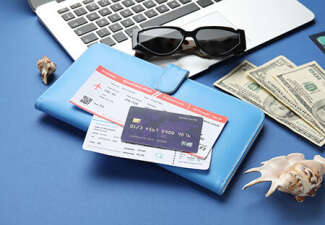The content on this page is accurate as of the posting date; however, some of the offers mentioned may have expired.
Yes you do! There will be situations in your life that will arise that you will not have remotely planned for. These include events such as hospitalizations, divorces, illnesses, accidents, natural disasters, etc. At least once in your life (if you should be so lucky) you will be faced with such trying circumstances.
In times like those, it is best to have a credit card available. Take into consideration the recent damage wrought by Hurricane Irene along the U.S. east coast. Sure it was nowhere near as bad as people feared, but it still waged a heavy toll.
A lot of people that were hit were without insurance. Because of this, a lot of them turned directly to credit cards. That helped them rebuild their homes (or anything else that was damaged) in the days that followed.
Otherwise, those people would not have had the right amount money available to them, as having a window (or something similar) replaced is an expensive procedure by any stretch of the imagination. Therefore, an emergency credit card provided an opportune lifesaver.
Then, there’s the whole world of medical debt, which can be a heavy weight to fall under! Some surgeries, for example, can cost up to $500,000 (that’s an organ transplant for beginners- better hope, uninsured reader; you don’t need a kidney anytime soon!)
Thus, some people, understandably, find themselves using credit cards with medical procedures they are unable to fathom. Even dental work or cosmetic work can be astronomical in terms of the price tags attached. When people are put in a desperate jam, they will take desperate measures. Which includes putting down a surgery or something akin to it on plastic?
These are all emergency situations that a credit card can be helpful for, if used frugally. You never know when a hidden - and enormous! – cost might appear hovering about on your financial horizon.
When a financial expert tells you to have an emergency credit card, it’s also smart to realize that this means a card you use sparingly and do not take to H&M with you, every chance you get. That’s just your average, day-to-day credit card. Make sure the line is defined between your standard card and your emergency card. Think of it is as a “spare tire” for your wallet that you are bound to need on the highway of life.






